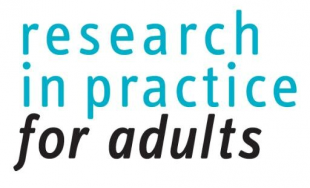It’s one of the privileges of social work that we are able to offer support and guidance during the very personal – and often hidden – struggles of individuals and their families.
Caring for and protecting those closest to you can be difficult and it is often the case that carers do not put themselves first. As a result, their own health and wellbeing can suffer, often affecting those they are caring for. In airline safety demonstrations, there’s a reason why the air crew advise passengers to attach their own oxygen masks before helping others!
 The Department of Health recently launched a call for evidence: How can we improve support for carers? In association with leading sector partners including Carers Trust and Carers UK, this is about finding new and better ways to support carers and keep them - and the ones they are caring for - healthy and happy.
The Department of Health recently launched a call for evidence: How can we improve support for carers? In association with leading sector partners including Carers Trust and Carers UK, this is about finding new and better ways to support carers and keep them - and the ones they are caring for - healthy and happy.
As social workers, we frequently encounter families where one or more members have caring responsibilities for a parent or sibling. More generally, we witness the stress and worry of those individuals, not only trying to maintain health and harmony in their own homes, but also juggle work or school with the health and care needs of relatives or dependents who may not live with them.
A Family Resources Survey conducted in 2013 revealed that around 54 percent of carers cared for someone outside their own home, versus 39 percent within. I’m sure the figures then – as now – were on the conservative side. Many individuals don’t even consider themselves carers and, for often very laudable reasons, avoid ‘bothering’ health and care services with their concerns.
 The time, expense and added stress of multiple caring duties cannot be underestimated. Related studies have shown that carers’ self-reported feelings of ill health, depression and general stress increase as care burdens intensify – this is hardly a revelation and surely all the justification needed to develop a new strategy for carers fit for the 21st Century.
The time, expense and added stress of multiple caring duties cannot be underestimated. Related studies have shown that carers’ self-reported feelings of ill health, depression and general stress increase as care burdens intensify – this is hardly a revelation and surely all the justification needed to develop a new strategy for carers fit for the 21st Century.
 I’m pleased to say it’s not only the Department of Health undertaking investigations into effective carer support. Our colleagues at Research in Practice for Adults (RiPfA) have been leading on the development of resources intended to provide good practice guidance for social workers so we can better support unpaid carers.
I’m pleased to say it’s not only the Department of Health undertaking investigations into effective carer support. Our colleagues at Research in Practice for Adults (RiPfA) have been leading on the development of resources intended to provide good practice guidance for social workers so we can better support unpaid carers.
In their own words, they “focus on the building blocks of good practice, developing learning and development resources to enable those working in health and social care to carry out their work effectively.” The project has involved a scope of evidence on effective practice - and coproduction - with a group of carers. Their case studies form the basis of a new set of resources. To introduce them, RiPfA will be holding three ‘train the trainer’ workshops in May which will be aimed at people who already have experience delivering training. You can find out more and book a workshop place on their website. The full set of resources will be available from May on an open-access microsite.
Their evidence based, holistic approach is essential for improving our practice. They have committed themselves to digging deep into carers’ lives to understand the totality of their experience: who do they care for, what is the state of their own health, which health and care services do they access for themselves and their dependents, and what else do they need to live happier, healthier lives? These are questions also being asked by DH’s call for evidence and I see the work of RiPfA as more than complementary to this exercise.
Once again, I urge all social workers and those who educate, commission or otherwise have involvement with social work services, to participate in this information gathering exercise. The more detailed the picture of modern care, the more we can do to support those who provide unconditional and compassionate support for their loved ones, often at the expense of their own health and life aspirations. They do so much – it’s the least we can do for them.
Leave a comment